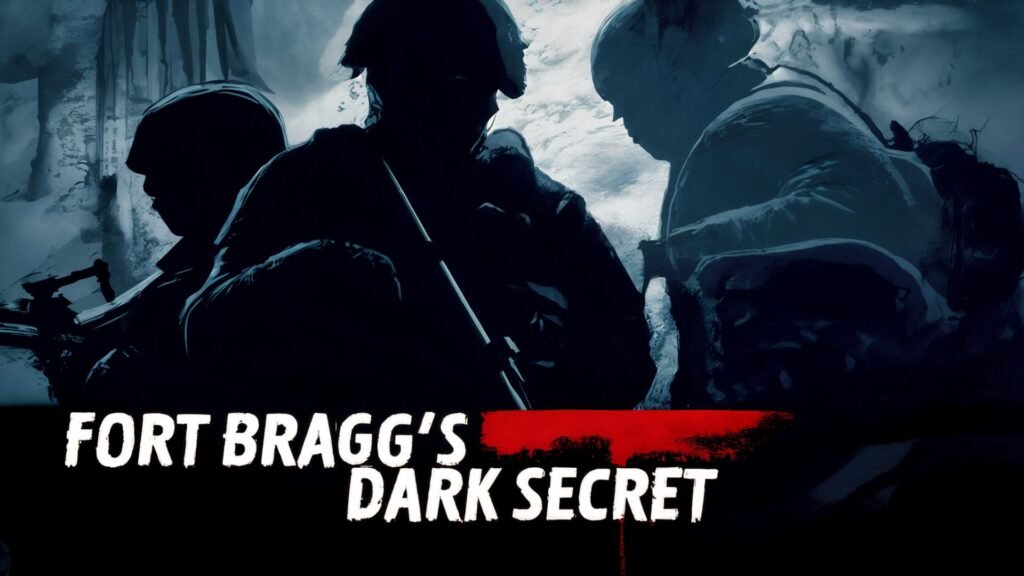
The Fort Bragg Cartel: An investigative reporter uncovers a web of drug trafficking, murder, and military cover-ups within the US Army’s most elite units, sparked by the brutal killing of a Delta Force operator.
Drugs, Murder, and the Special Forces’ Alleged Cartel
Fort Bragg (or is it Fort Liberty again?), North Carolina – a name that conjures images of steely-eyed Green Berets and the almost mythical Delta Force. It’s a place we associate with unwavering patriotism and the epitome of military excellence. But what if that image is a carefully constructed facade? What if, beneath the surface of razor-sharp discipline and unwavering resolve, lies a darkness so profound it threatens the very foundations of this elite institution?
I find myself wrestling with these questions after delving into the unsettling claims made by Seth Harp in his book, The Fort Bragg Cartel: Drug Trafficking and Murder in the Special Forces. It’s more than just a «review» – it’s a disturbing descent into allegations of widespread drug trafficking, stolen weapons, and a series of unsolved murders, all purportedly shielded by a deeply entrenched system of impunity. The genesis of this investigation, two Special Forces soldiers found dead, the victims of a drug deal gone wrong, is a chilling entry point into a world we’d rather not believe exists.
The stakes are undeniably high. This isn’t merely about individual criminal acts; it’s about the slow, insidious erosion of trust, the tragic human cost of unchecked power, and the potential compromise of our nation’s most highly trained warriors.
The «Cartel» Exposed: Shocking Allegations from Inside Fort Bragg
Harp’s investigation paints a disturbing picture: elite soldiers allegedly operating a sophisticated network of narcotrafficking, smuggling opioids and cocaine into the United States, and potentially collaborating with the very cartels they are sworn to fight. The alleged key players are a cast of characters that read like a dark, modern-day tragedy: Master Sergeant William «Billy» Lavigne, a Delta Force operator and traumatized veteran, whose life spiraled into crack addiction and drug dealing, eventually leading to his violent demise. Chief Warrant Officer Timothy Dumas, a Special Forces quartermaster, allegedly involved in both drug and weapons trafficking, who penned a blackmail letter threatening to expose widespread military criminality in Afghanistan before also meeting a violent end. And then there’s Freddie Wayne Huff, a former DEA agent gone rogue, the alleged linchpin connecting the Fort Bragg soldiers to the Mexican cartels – specifically, Los Zetas, an organization ironically once trained by U.S. forces. Huff is the one who coined the term «the Fort Bragg Cartel.»
It is not a handful of isolated cases, the book points out that at least 14 cases of Fort Bragg-trained soldiers involved in drug trafficking over just five years. But perhaps the most alarming statistic is the staggering 109 unexplained deaths at Fort Bragg between 2020 and 2021 alone. These deaths, often attributed to drug overdoses, suicides, and homicides, dwarf the numbers seen at other military bases, a fact that demands serious scrutiny.

Echoes from the Past: Fort Bragg’s Troubled History
Perhaps what’s most unnerving is the realization that these allegations aren’t entirely new. Fort Bragg’s history is marred by instances of serious crime and violence. One cannot forget the horrific events of 2002, when four wives of soldiers, three of whom had recently returned from deployments in Afghanistan, were murdered by their husbands within a mere six weeks. These tragedies underscored the immense psychological toll of deployments and the potential for systemic failures in addressing the mental health of our service members. And let’s not forget the earlier, infamous cases, from the Jeffrey MacDonald murders in 1970 to Ronald Gray’s killing spree in the 1980s. These events cast a long shadow over the base.
Harp raises a particularly unsettling point about the U.S. military intervention in Afghanistan. He suggests that our involvement may have inadvertently fueled drug production, with warlords and even police chiefs on the U.S. payroll allegedly complicit in the opium trade. It’s a bitter irony, a stark reminder of the unintended consequences of our foreign policy.
The Elephant in the Barracks: Controversies and Criticisms
Critics allege a deeply ingrained culture of impunity within elite units, where reckless behavior, violence, and substance abuse are routinely «swept under the rug.» There is a growing sentiment that government officials turn a blind eye to the crimes committed by those within Joint Special Operations Command (JSOC). This begs the question: why the lack of accountability? The contrast between the 38 deaths at Fort Hood in 2020, which led to congressional investigations and firings, and the 109 unexplained deaths at Fort Bragg during 2020-2021, which have not provoked the same level of public outrage or systemic change, is jarring.
While U.S. Special Operations Command (SOCOM) leaders have publicly acknowledged that such behavior is «corrosive,» they often frame it as «atypical,» which leads to accusations of minimizing the severity of the problem. A 2019 internal review did, however, identify «severe issues with ethics.» And adding another layer of complexity is a series of recent controversies surrounding political events at the base, such as debates over soldier screening and the sale of MAGA merchandise. These incidents raise concerns about the military’s neutrality and its susceptibility to political polarization.
The Road Ahead: Ongoing Investigations, Reforms, and Long-Term Implications
The Army Criminal Investigation Division (CID) is reportedly actively investigating the drug allegations, and a number of Special Operations soldiers have been questioned. There have been legislative changes spurred by journalistic efforts like Harp’s, for example DOD Overdose Data Act of 2023. Congressional pushes for military criminal justice reform are underway, spurred by unsolved cases like Spc. Enrique Roman-Martinez’s murder. And finally, military police are receiving specialized narcotics training.
These are positive steps, but are they enough? The long-term implications of these allegations are far-reaching. The reputation of Special Forces, and the wider military, is at stake. Widespread drug abuse and criminal activity can only undermine discipline and mission effectiveness. The potential for elite personnel to become entangled with cartels poses a direct threat to sensitive operations and, ultimately, to national security. But beyond these tangible concerns lies the unseen toll of «forever wars,» the mental health crisis, PTSD, and substance abuse that plague our returning veterans. These issues demand comprehensive, systemic solutions.
Conclusion: A Plea for Transparency and the True Cost of War
The allegations presented in The Fort Bragg Cartel paint a disturbing portrait of unchecked power and devastating consequences. To truly support our troops, we must demand transparency, accountability, and robust support systems. The dark secrets of Fort Bragg serve as a stark reminder of the hidden costs of prolonged conflict and the critical need to confront uncomfortable truths within our most revered institutions. It’s a plea for us to look beyond the heroic narratives and grapple with the complex realities of war and its impact on those who serve.

DISCLAIMER: This website contains Amazon affiliate links, which means that if you click on one of the product links, we will receive a small commission.
#AudiobookBenefits #ListenAndLearn #AudiobooksForAdults #MentalHealth #ContinuousLearning #AudiobookLove


